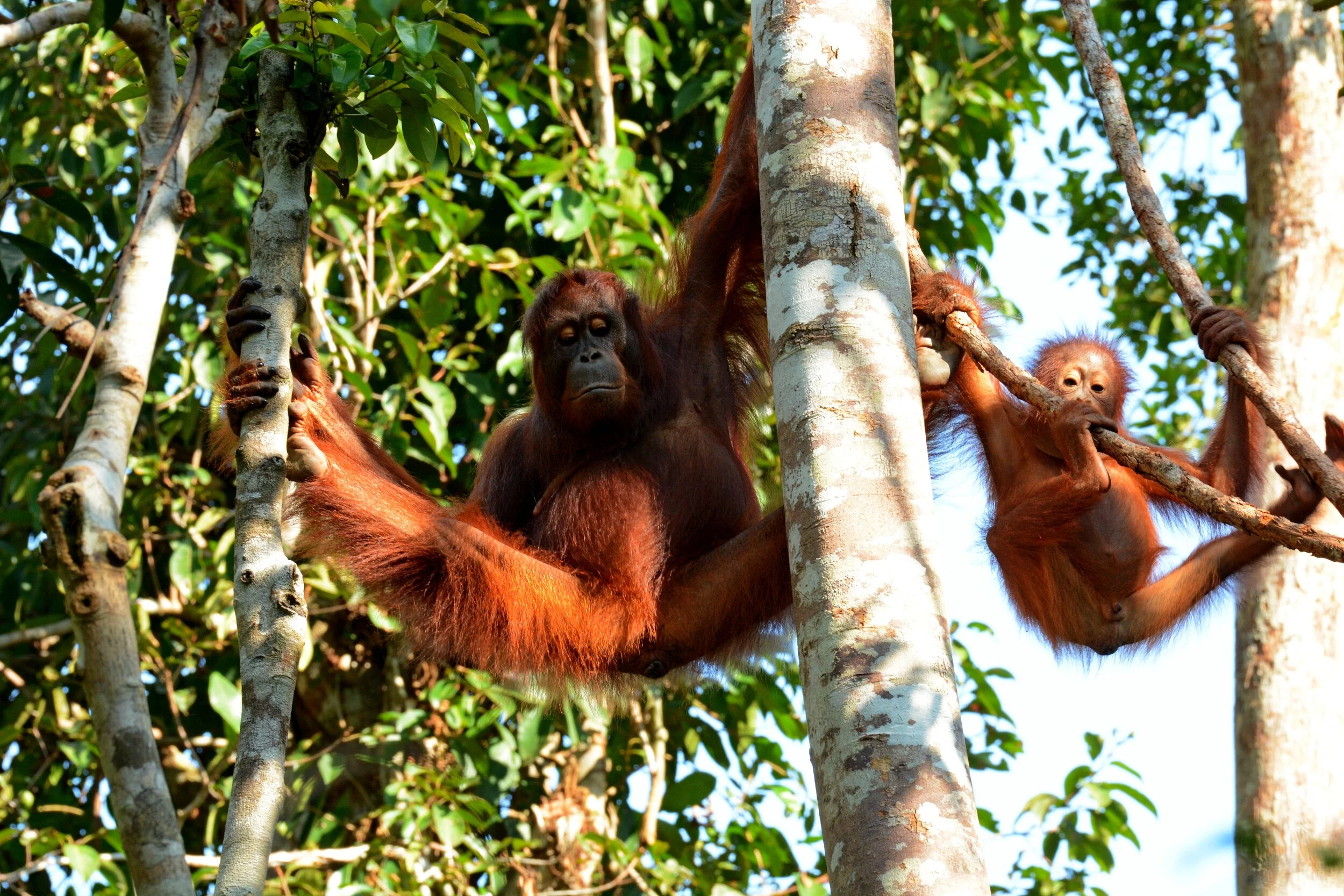In light of the recent COVID-19 outbreak, it is not just ourselves who may be at risk from infection, but in fact all great apes. Today, people worldwide are taking necessary precautions to halt the spread of the virus to one another, and we must use these same principles in order to prevent other susceptible species from becoming a victim of the pandemic.
At this time it is not known what effect this virus has on orangutans, however when we consider that they share 97% of their DNA with humans, and that Bornean, Sumatran, and Tapanuli species are classified as critically endangered, there is a genuine threat to these already vulnerable populations.
In an effort to temper the virus’s spread, eco-tourist sites such as Tanjung Puting National Park (above) have been temporarily closed to Indonesian and foreign visitors, much like well-known sites in Africa which have been closed to mountain gorilla viewings. At the Orangutan Foundation meanwhile, our teams continue to follow current safety measures in London and Indonesia.
In today’s unsteady climate, our priority of safeguarding orangutans and their forest environment remains a constant as we also protect our staff. Our habitat protection and restoration teams have taken note of the current warnings, and those caring for orphaned orangutans in our soft-release programme as always will continue to wear protective suits, gloves, and masks in the Lamandau Wildlife Reserve.
During this uncertain time your support is pivotal to our ongoing work more than ever, which is why on behalf of all of us at the Foundation, we would like to thank you for helping us do all we can to protect orangutans from this threat to their future.





